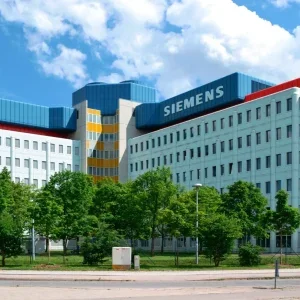
Energy companies Equinor and Shell have reached an agreement to form a joint venture (JV) that will combine their offshore oil and gas assets in the UK.
The partnership, structured as a 50:50 joint ownership, will create the largest independent producer in the UK North Sea. The JV’s production is estimated to exceed 140,000 barrels of oil equivalent per day by 2025.
Currently, Equinor’s UK operations produce approximately 38,000 barrels of oil equivalent per day, while Shell’s UK portfolio generates over 100,000 barrels daily. The JV aims to enhance domestic oil and gas production while contributing to the UK’s energy supply stability.
Equinor and Shell will retain specific non-UK assets. The Norwegian firm will continue operating its cross-border projects, including Utgard, Barnacle, and Statfjord, and its offshore wind developments such as Sheringham Shoal, Dudgeon, Hywind Scotland, and Dogger Bank.
Additionally, Equinor will maintain its focus on hydrogen, carbon capture and storage, and energy storage projects.
Shell will retain control of its interests in the Fife natural gas liquids (NGL) plant, St Fergus Gas Terminal, and floating wind initiatives MarramWind and CampionWind. It will also continue as the technical developer for the Acorn carbon capture project in Scotland.
Shell integrated gas and upstream director Zoë Yujnovich said: “Domestically produced oil and gas is expected to have a significant role to play in the future of the UK’s energy system. To achieve this in an already mature basin, we are combining forces with Equinor, a partner of many years.
“The new venture will help play a critical role in a balanced energy transition providing the heat for millions of UK homes, the power for industry and the secure supply of fuels people rely on.”
The JV’s operations will be based in Aberdeen. Its portfolio will include Equinor’s stakes in the Mariner, Rosebank, and Buzzard fields, alongside Shell’s interests in Shearwater, Penguins, Gannet, Nelson, Pierce, Jackdaw, Victory, Clair, and Schiehallion fields.
Exploration licences held by both companies will also be part of the transaction.
Equinor employs 300 people in its UK oil and gas operations, while Shell’s workforce in similar roles totals approximately 1,000.
Once operational, the JV will leverage the expertise and experience of both companies, which have decades of involvement in the North Sea. The partnership seeks to maximise the economic recovery of UK Continental Shelf assets and address declining production levels in the region.
Under the agreement, the new company will operate independently and fund its activities. Equinor’s stake in the JV will be accounted for as equity, and the company will not report organic capital expenditures for this investment.
The structure is expected to provide Equinor with increased short-term production and cash flow, while reducing risk exposure through a balanced ownership arrangement.
Equinor exploration and production international executive vice president Philippe Mathieu said: “Equinor has been a reliable energy partner to the UK for over 40 years, providing oil and gas, developing the offshore wind industry, and advancing decarbonisation.
“This transaction strengthens Equinor’s near-term cash flow, and by combining Equinor’s and Shell’s long-standing expertise and competitive assets, this new entity will play a crucial role in securing the UK’s energy supply.”
The agreement will take economic effect from 1 January 2025, with completion subject to regulatory approvals. The deal is anticipated to close by the end of 2025.
Last month, Shell and Equinor appealed to the Court of Session in Edinburgh to support the UK government’s approvals of their Jackdaw and Rosebank projects.
Greenpeace is contesting the approvals, seeking to halt the developments. Shell is defending the 2022 authorisation of the Jackdaw gas field, while Equinor and Ithaca Energy are contesting challenges to the 2023 approval of the Rosebank oilfield.






